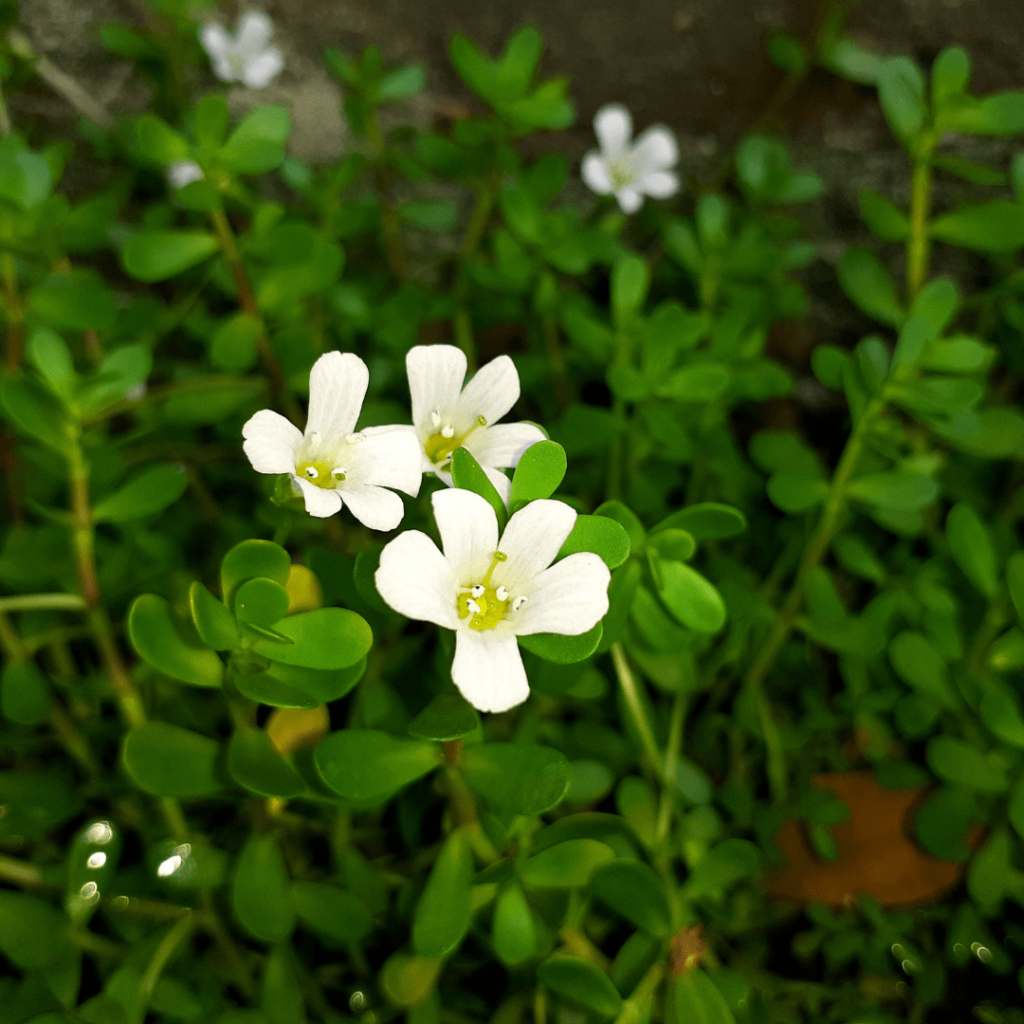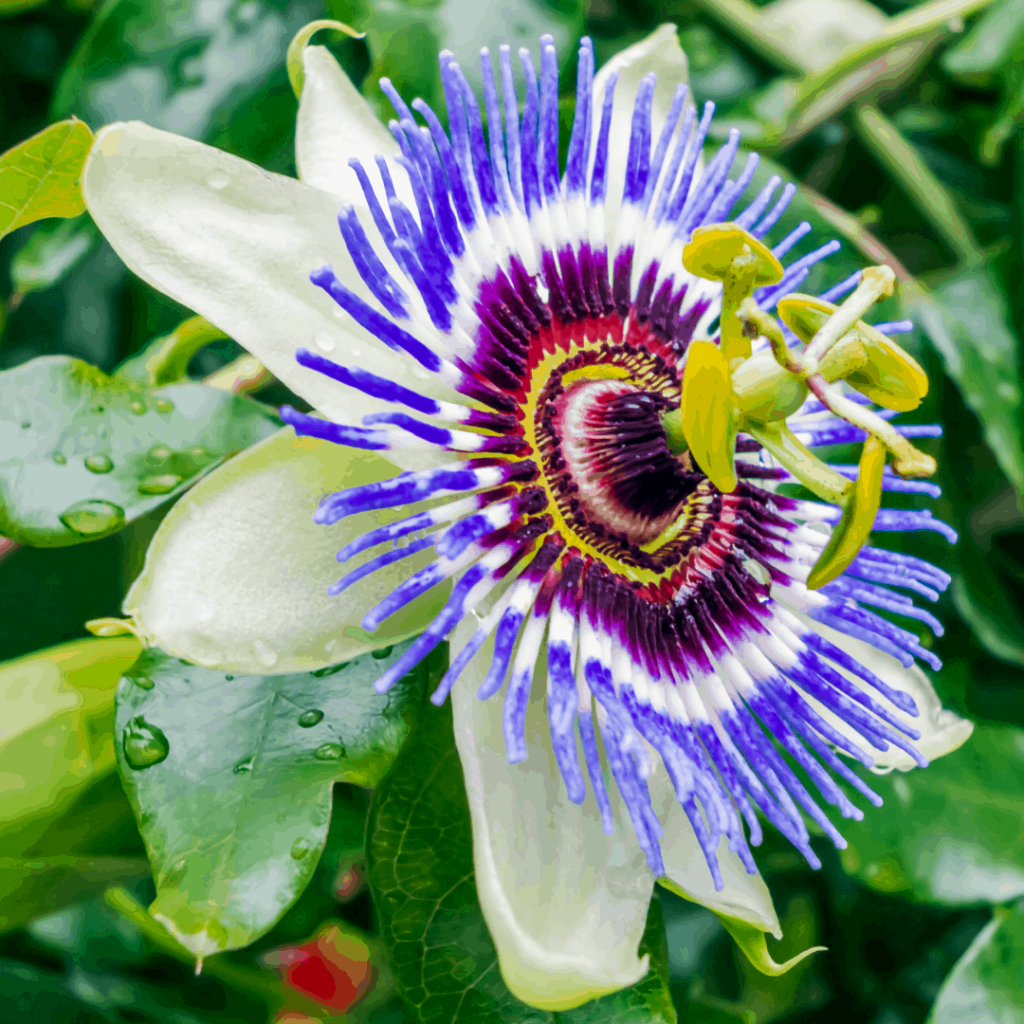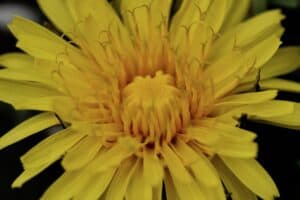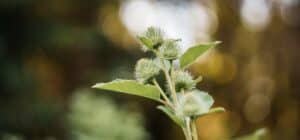Table of Contents
Plant Intelligence
In this week’s post, we’re going to look at using herbs for the mind. It’s common when we’re studying plants to focus on using them for our body and common symptoms, ailments and conditions that we deal with as humans. But we also want to remember that herbal medicine can also have an amazing influence on our mind and on our psychological state. This is predominantly because a number of medicinal plants directly influence our nervous system and the state of our nervous system, as well as our endocrine system, directly impacts our state of mind. The power of plants is in their ability to change our physiology, which can then change our state of thinking.
The reverse is also true. The more that we pay close attention to the plants and become aware of the subtleties in the way in which a plant influences us, we can start to notice the way that they affect our minds. This is especially true with alchemical preparations of the plants. I’ve found over the last decade-plus of working with spagyric forms of herbal medicine, that they have the ability to influence the mind and help open us up to learning about ourselves and life, learning both from the experiences that we have within ourselves and outside of ourselves. In that way, these herbal medicines can be teachers and help us to become better people and help us to find that balance that we’re looking for in the body, in the mind, as well as within the soul, and supporting us in our own spiritual or personal development and becoming the best versions of ourself.
Herbs for Different Psychological Patterns
So let’s look at some of the main categories of herbal medicines that I consider when we’re looking at treating the mind. A student asked me the question: how can you help someone with a stuck looping mind with herbs? This is when the mind gets stuck on one thing, and it’s just looping back around, and incessantly thinking about that one thing over and over and over and over again. What is the meaning of that? What’s the constitutional pattern behind that? What are some categories of remedies and some specific remedies that you can consider for treating that type of psychological pattern?
You can absolutely support the mind in general with herbal medicine. Oftentimes when we’re thinking of treating the mind or the psychological patterns or the way we think, there are a couple of different categories of plants that come to mind.
First, let me take a step back and share how I think through these kind of psychological patterns. Oftentimes when people have a primary complaint of something going on with their mind, more often than not it’s cognitive things like difficulty concentrating, difficulty focusing, or loosing memory etc. I think of it in two different categories. On one side you have what in Ayurveda we might refer to as a kapha mind: cold, unclear, foggy brain, can’t see through the haze, everything feels stagnant up in the brain, and it’s hard to focus. The other side of that would be what we might refer to more as a vata condition in the cognitive faculty, which is more spaced out, ungrounded, scattered, all over the place, nervous, and feelings of anxiety.
The Foggy Brain
Fortunately for us, we have a couple categories of plants that can help us address these states of mind. For the kapha brain, the cold uclear foggy bran, we want to use things like circulatory stimulants and bitter nootropics. These are herbs that will help bring blood flow to the brain, and generally overall help to drain fluids. And there are some nootropics that have more of a bitter taste to them. Oftentimes we want to get more blood flow up into the brain to help stimulate and protect ourselves against cognitive decline – this is where things like Bacopa, also known as Brahmi (Bacopa monnieri), is really great. This little remedy supports mental performance while reducing stress and also acts as an adaptogen to the adrenals – meaning that it will promote resilience and help us respond better in stressful situations. Rosemary (Salvia rosmarinus) is also an excellent remedy here as it really brings circulation up to the brain which helps with clarity and alertness of the mind. Lastly – one of my favorites, is Calamus or Sweet flag (Acorus calamus) root is quite wonderful – this is a bitter-carminative remedy that increases cerebral circulation and is rejuvenating to the brain and nervous system. A Calamus person feels cloudy in their mind and it feels like a boggy, stagnant, marsh, as if they’re seeing everything through a haze. They have a sense of needing to say or express something that just outside of their ability to communicate, grasping for thoughts but never being able to get to it. Calamus will help with this haze – as will the former two I mentioned.

Here’s a great little formula useful for a foggy brain:
Cognitive Triplet
33% Calamus (Acorus calamus)
33% Gotu Kola (Centella asiatica)
33% Bacopa (Bacopa monnieri)
This is a triplet used in Ayurvedic medicine to treat the mind, nerves, and perception. It is quite incredible how these herbs synergize… both work through the nervous system and brain, Calamus clearing stagnation and uplifting the “haze” and Gotu Kola gently calming, rejuvenating, and focusing the mind and Bacopa supports mental performance and reduces stress – something we could all use I think! While it’s commonly spoken of for cognitive deficiency, this is also incredible for neurological issues such as hysteria, fainting, dizziness, and people with an unstable psyche.
The Looping Mind
On the other side of it, we have more the vata mind, the more spaced out, ungrounded, scattered, and all over the place, mind – one that can generate feelings of anxiousness and nervousness. This mindset can really respond well to nervines. But wait, whats a nervine? Nervines are a category of plants that helps calm, settle, sedate the mind, and basically get the nervous system to settle down so that it can focus on what’s right in front of it.
I would put a looping mind in that second category. Looping is movement. It’s moving all over the place, but coming back to the same things over and over again. It’s not a lack of thought, not having a clear thought. It’s more of too much thought, too much moving over here, over there, back over here, back over there. It’s kind of moving all around. So that’s usually where I focus on sedative nervines.
My go-to remedy for looping thoughts is Passionflower (Passiflora incarnata). That is a specific indication for Passionflower, especially for people who can’t sleep because of looping repetitive thoughts. They just keep going around and around and around in mental circles. Passionflower is an excellent remedy for this state. You actually see the signature of that on the plant itself as Passionflower is a vine and it has these little tendrils that spiral around – a signature for the looping mind. It’s great for mental “all-over-the-placeness.” And it’s a stronger nervine, so it will help calm anxiety, nervousness and insomnia if thats a tendency.
Another remedy I like is Skullcap (Scutellaria spp.) here. I think of Skullcap more for folks who feel like the top of their head is a little open, like they’re really sensitive, whether emotionally or spiritually, and their energy moves up and out. The Skullcap person feels really ungrounded. They might be thinking about far-out-there stuff a lot. They’re not grounded in reality nor very practical. In terms of the chakra system, it would be like their crown is too open and all of their vital forces are moving up and out. The name Skullcap sounds like what it does: it helps to put a cap on it, put a lid on it, and bring that vital force down and in. It’s nice and bitter, brings things down, drains things down, sedates the mind, calms the mind, but also helps to replenish and rejuvenate a worn-out nervous system, which is quite common for people with that type of pattern, because they’re so sensitive. Their nervous system just gets on edge a lot, and they can be more prone to burnout. And adding in a little Milky oats is also ideal in the way that it will help to replenish and rejuvenate a worn-down nervous system.

And another formula useful for an anxious brain:
Calming the mind
20% Skullcap (Scutellaria lateriflora)
20% Passionflower (Passiflora incarnata)
20% Milky Oats (Avena sativa)
20% Holy Basil (Ocimum sanctum)
20% Ashwaghanda (Withania somnifera)
There’s a number of variances I’ve made to it for specific people over the years, but this is a good general place to start. Regardless of the variances, the one constant is the lead triplet of Skullcap, Milky Oats and Passionflower as the primary nerve trophorestorative element of the formula. The supporting remedies typically include mild nervine sedatives, in this case Holy Basil, adaptogens with a tendency towards the nerves like Ashwaghanda. But, this formula can be really flexible. I usually like to make sure there’s aromatic nervines in there to help “volatilize” the formula up into the brain and nerves. So you could add something like Lavender. I also like Eleuthero quite a bit, especially for a property I learned from Matthew Becker, which is that it tends to drive other herbs deeper into the nervous system.
So, those are some of the main remedies that I would consider here to support and heal a few different states of mind. And one last note here, it’s always good to take into consideration the person’s constitution. If they’re really cold, we want to be a little careful with our colder remedies, etc. Make sure the energetics of the herb is close to being in accordance with the constitution of the person, especially if they’re going to be working with those plants for a longer period of time. It’s one reason I quite like passionflower, because it’s pretty temperature neutral. You’re not going to shift anyone. It’s slightly cool, but it’s negligible. It’s not going to make a cold person colder by any means.
So here’s a little review on how you can help people with their mental and cognitive challenges with herbs. And as I like to say, in addition to looking up herbs in books, the best way to learn how herbs can help the mind is to learn your herbs from the plants themselves, get familiar with them, taste them, and use them! Then you really get to learn what works and what doesn’t.







